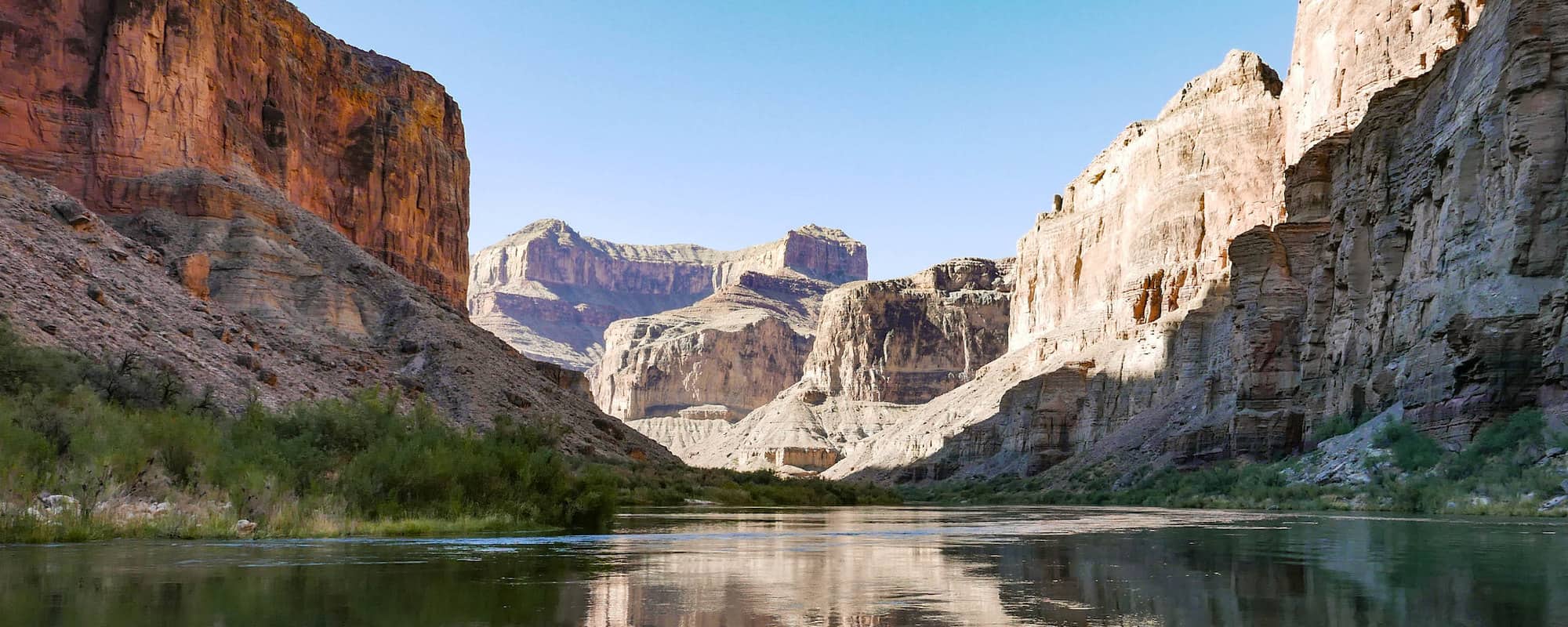Aunge Thomas, Academic Dean, and Jennifer Royall, Executive Director, recently packed their bags, put on their flexible pants, and headed to southern Africa to re-engage with communities and people who bring the magic to life for our students. Check out what Aunge has to say about their journey revisiting old memories and dreaming up new possibilities as they maneuvered from Cape Town, South Africa, to Gorongosa National Park, Mozambique.
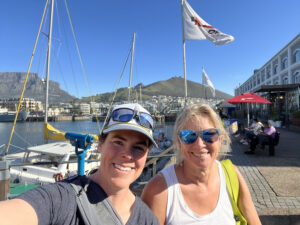
As the plane descended, stunning views of Table Mountain immediately greeted us as the setting sun 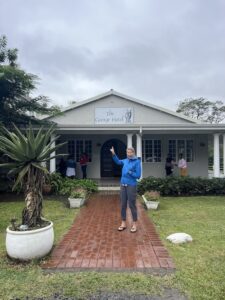 reminded us of all Cape Town has to offer. For those familiar with our southern Africa semester, Zebra Crossing is getting a little make-over, the debate between Yum-Yum and Black Cat continues, and The George Hotel still has TTS on their website and is looking forward to sharing Zulu culture with us once again. In Traveling School style, we scampered through the city from Bo Kaap to the Waterfront to District Six Museum to the botanical gardens we packed it all in! From there, we headed north and explored the rugged beauty, unique rock formations, and delicate petroglyphs tucked away in the Cederberg Mountains as we met generous hosts and schemed about new backpacking routes. Then it was time to leave the mountains and switch climates, scooting over to the crashing waves of the Indian Ocean, where we could visualize TTS students shouting poetry into the surf.
reminded us of all Cape Town has to offer. For those familiar with our southern Africa semester, Zebra Crossing is getting a little make-over, the debate between Yum-Yum and Black Cat continues, and The George Hotel still has TTS on their website and is looking forward to sharing Zulu culture with us once again. In Traveling School style, we scampered through the city from Bo Kaap to the Waterfront to District Six Museum to the botanical gardens we packed it all in! From there, we headed north and explored the rugged beauty, unique rock formations, and delicate petroglyphs tucked away in the Cederberg Mountains as we met generous hosts and schemed about new backpacking routes. Then it was time to leave the mountains and switch climates, scooting over to the crashing waves of the Indian Ocean, where we could visualize TTS students shouting poetry into the surf.
While many aspects of South Africa felt familiar, the reality of load shedding was stark and powerful. Load shedding, an all too familiar term for South Africans, describes the intentional, temporary power outages that occur when the national electricity grid is under strain. The reasons for load shedding are complex but largely due to insufficient investment in new power generation capacity, politics, and aging infrastructure that is not maintained well. While we tracked scheduled outages and prepped ourselves for periods of no power, we began to imagine how TTS39 might navigate this and learn from the daily routines and strategies of South Africans. Stop for a minute and think about how intermittent power would impact your daily routine – keeping refrigerated items cold, driving through busy intersections with no traffic lights, studying after dark, going to a restaurant – occurrences that feel normal become more complex.
strain. The reasons for load shedding are complex but largely due to insufficient investment in new power generation capacity, politics, and aging infrastructure that is not maintained well. While we tracked scheduled outages and prepped ourselves for periods of no power, we began to imagine how TTS39 might navigate this and learn from the daily routines and strategies of South Africans. Stop for a minute and think about how intermittent power would impact your daily routine – keeping refrigerated items cold, driving through busy intersections with no traffic lights, studying after dark, going to a restaurant – occurrences that feel normal become more complex.
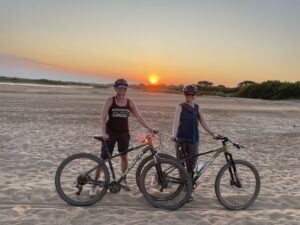
In the final leg of our trip, we traveled north to Gorongosa National Park in central Mozambique. While we were both excited to safari in this incredible landscape, we were more curious about Gorongosa’s conservation success. A team of dedicated scientists 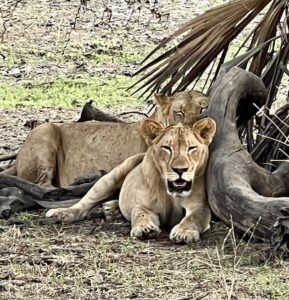 and conservationists have worked tirelessly to restore the park’s ecosystems and protect its wildlife after decades of civil war. But Gorongosa is more than just a park – it’s also a hub for community development and education with programs focused on health, education, and economic empowerment. One program piqued our interest, the Girls’ Clubs, which shares a similar vision with TTS and aims to break down gender barriers and promote gender equality, empowering girls to become leaders and change-makers in their communities. Gorongosa, like The Traveling School, understands the ripple effect of positive change that extends beyond borders. This visit left us dreaming of new possibilities and powerful, lasting community connections for our southern Africa semester.
and conservationists have worked tirelessly to restore the park’s ecosystems and protect its wildlife after decades of civil war. But Gorongosa is more than just a park – it’s also a hub for community development and education with programs focused on health, education, and economic empowerment. One program piqued our interest, the Girls’ Clubs, which shares a similar vision with TTS and aims to break down gender barriers and promote gender equality, empowering girls to become leaders and change-makers in their communities. Gorongosa, like The Traveling School, understands the ripple effect of positive change that extends beyond borders. This visit left us dreaming of new possibilities and powerful, lasting community connections for our southern Africa semester.
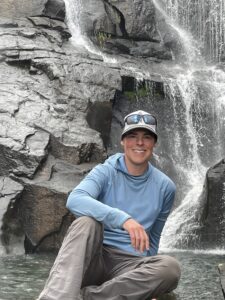
Aunge Thomas, Academic Dean


